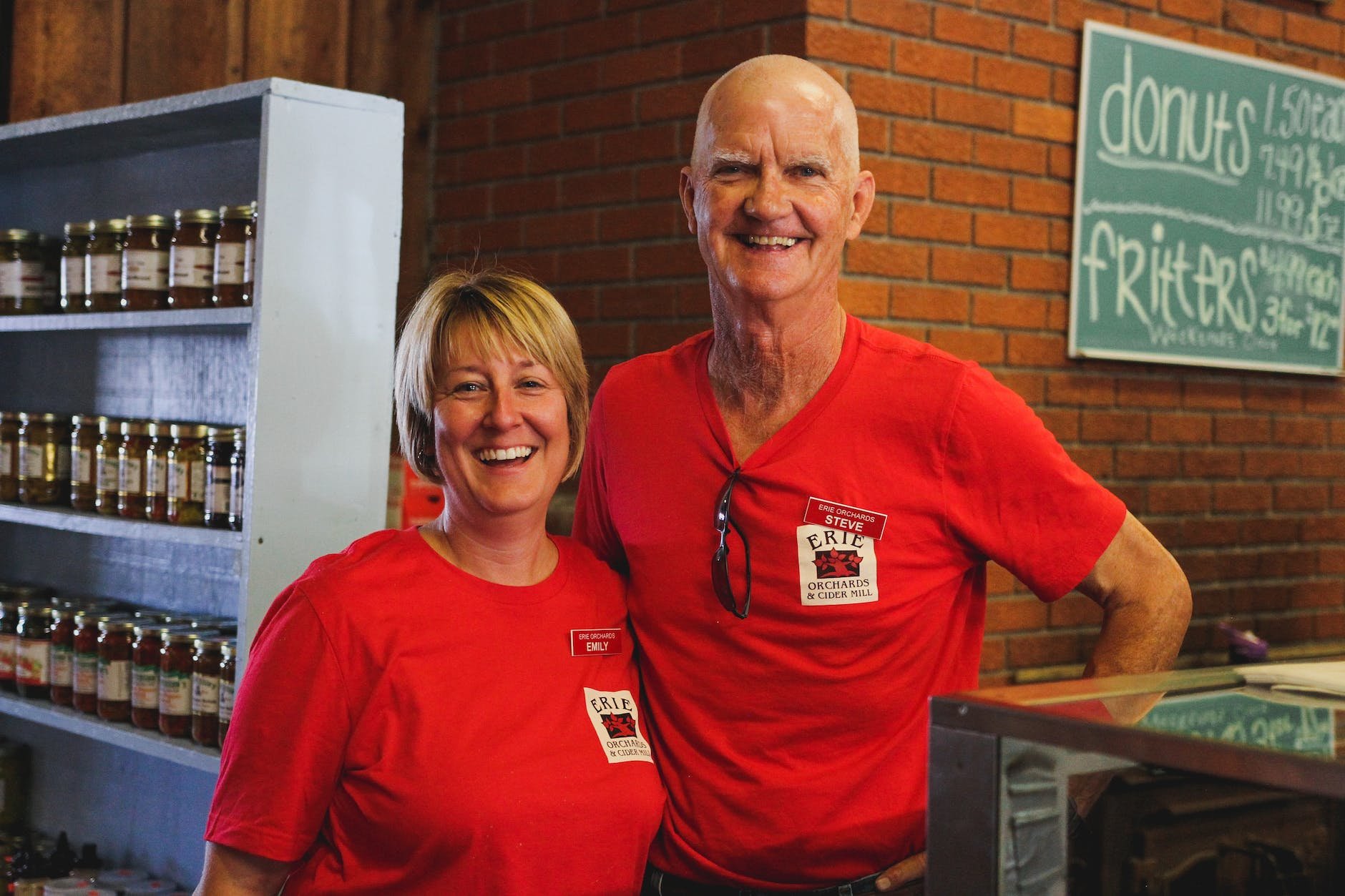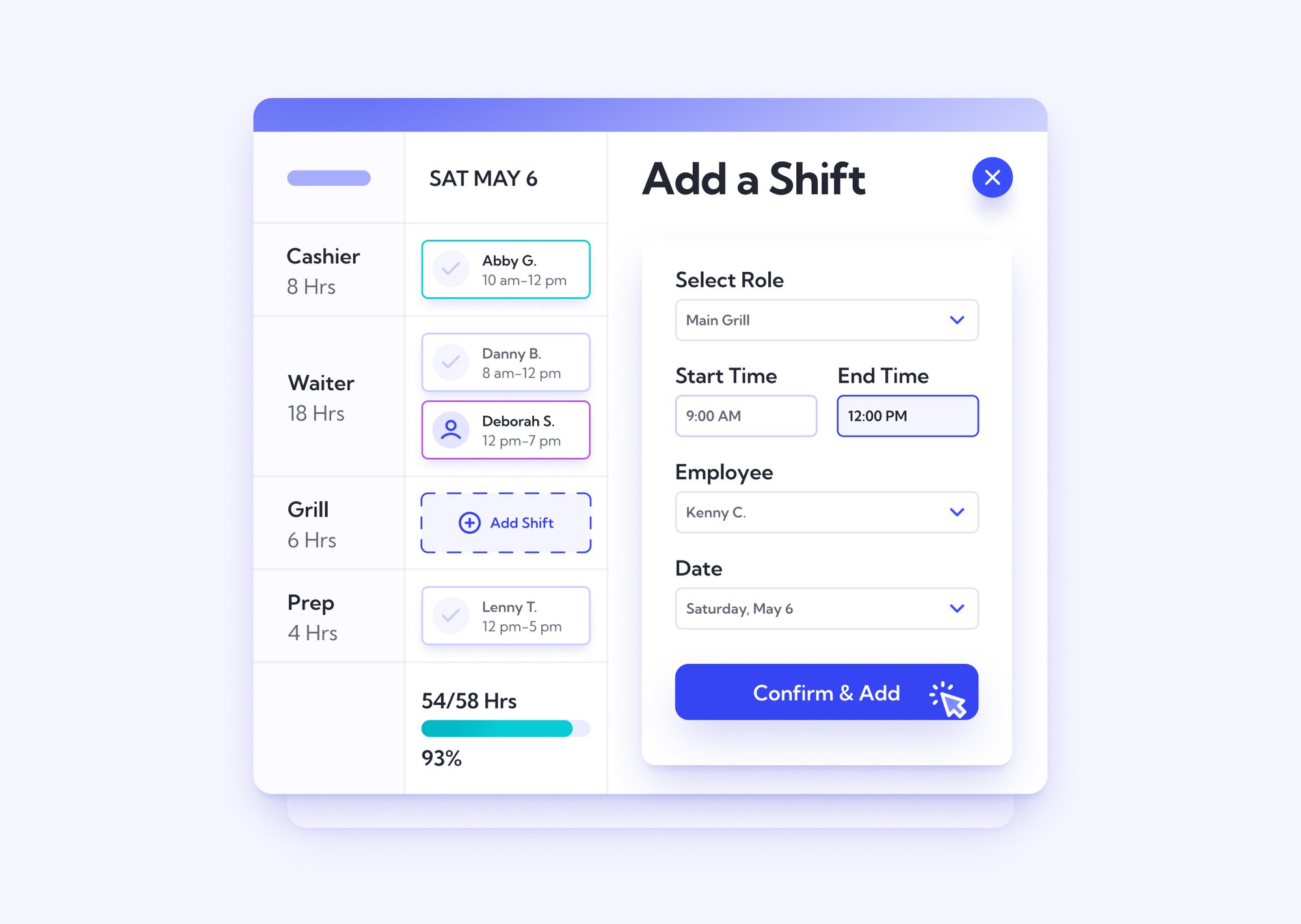About 82% of US workers say they would quit their jobs because of a bad manager. With the high turnover rates and financial uncertainty looming recession, restaurants can’t afford to lose staff members.
A restaurant manager is a professional responsible for overseeing the daily operations of a restaurant, ensuring customer satisfaction, managing staff, and maintaining the overall quality and profitability of the establishment. This role involves tasks such as staff scheduling, training, inventory management, compliance with health and safety regulations, and handling customer service issues.
The Traits and Skills of a Good Restaurant Manager
There are plenty of different effective managerial styles, but there are a few things that ring true no matter what. Successful restaurant managers have certain patterns of behavior that help them oversee and manage the many aspects of the food service industry. A combination of soft and hard skills is essential to effectively lead a restaurant team and ensure the overall success of the business.
Soft skills pertain to the interpersonal, emotional, and communication-based abilities that are integral to successful leadership and team management. These skills are often honed through experience and personal development. Some key soft skills for a restaurant manager include communication, leadership, problem-solving, time management, empathy, etc. These skills go a long way towards making employees feel valued and satisfied.
On the other hand, hard skills in the context of a restaurant manager refer to the specific technical and practical competencies required to perform the duties of the role effectively within the hospitality industry. Some critical hard skills for a restaurant manager include inventory management, financial management, food safety regulations, menu planning, scheduling, knowledge of marketing, etc. The things that keep a restaurant running efficiently.
Let’s look at some qualities of a good restaurant manager needed to run a restaurant business effectively.

1. Leadership and Communication Skills
Leadership mindset is among the most important traits of a good restaurant manager. This refers to the attitudes shaping how one leads, interacts, and influences others. A manager with a leadership mentality impacts everyone in the work environment as they push their team to achieve goals through personal development.
Restaurant managers lead their teams to greatness by:
- Providing services with the guest experience in mind—to set an example for employees.
- Ensuring the staff is carrying out the basic functions of their role and helping them if there’s too much on their plate.
- Having open communication based on trust with the back and front-of-house.
Communication is vital to managing restaurant employees from the back and front-of-house. When you clearly set rules and expectations, and listen to your employees, working towards the same business goal is easier.
2. Positive Attitude
The work environment in the food industry is fast-paced and stressful. Keeping a positive attitude can be difficult, but when things are at their most intense, workers will look to management to keep a cool head.
Managers with a positive demeanor set the tone for your restaurant staff. This affects both restaurant operations and customer satisfaction. When you nurture a positive environment, staff members are more productive and have an engaging demeanor when greeting customers.
Not only does a positive attitude affect the restaurant dining experience, but positive thinkers reach higher goals. When you maintain a positive attitude, you stay confident and hopeful, making you spend more effort on reaching your goals.
3. Organizational Skills
Organizational skills are not just about keeping the restaurant running; they're about creating an environment where excellence is the norm, employees feel valued and motivated, and customers receive outstanding service. An efficient restaurant manager must possess a strong capability in several key areas to ensure the establishment runs like a well-oiled machine.
Scheduling
Effective scheduling is crucial in a restaurant setting. Managers must balance the staffing needs of the restaurant with the personal and professional needs of their employees. This involves forecasting busy periods, understanding the strengths and weaknesses of each team member, and scheduling accordingly to ensure optimal service without overstaffing or understaffing. The goal is to maximize productivity while maintaining a motivated and balanced workforce.
Lineup.ai offers a sophisticated solution through its AI-driven scheduling software. This technology aims to hit labor targets without compromising employee well-being. It prevents burnout by scheduling the appropriate number of hours and staff, ensuring that time is utilized effectively.
The AI system considers employee preferences for shifts and days off, which helps improve staff satisfaction and retention. With Lineup.ai, the right people are assigned the right shifts, ensuring that the restaurant is appropriately staffed for its volume of business. This approach not only makes staff feel heard and valued but also prevents them from being overworked, thereby maximizing the value of their shifts.

Inventory Management
A well-managed inventory ensures that the restaurant can meet its customers' demands without excessive wastage or stockouts. This requires a systematic approach to ordering, storing, and using ingredients and supplies. Efficient restaurant managers implement inventory control systems that track stock levels in real-time, forecast needs based on trends and upcoming events, and adjust orders to prevent waste and loss.
Task Delegation
Delegating tasks effectively is another critical organizational skill. It's about more than just assigning duties; it's about recognizing the abilities and potential of each team member and entrusting them with responsibilities that match their skills and growth aspirations. Effective task delegation empowers employees, fosters a sense of ownership, and enhances team productivity.
Attention to Detail
The devil is in the details, especially in the restaurant industry. From ensuring the cleanliness of the dining area and kitchen to monitoring the presentation of dishes and the accuracy of orders, attention to detail impacts every aspect of the restaurant's operation. It's the small touches that often make the biggest difference in customer satisfaction and operational efficiency. An efficient restaurant manager notices these details, sets high standards for their team, and leads by example, ensuring that excellence is a constant goal.
4. Strategic Foresight
Want to keep things running smoothly? Pay close attention to detail, anticipate roadblocks, and take a proactive approach. While it’s not possible to see the future, savvy managers can recognize patterns and trends to be better prepared for what’s coming.
One of the best qualities of a good restaurant manager is an eye for planning and strategy. A good manager looks at the big picture and plans to overcome any challenge that impacts the dining experience. Developing and executing long-term strategies is crucial for a restaurant’s success.
When restaurant managers take into account details like their restaurant staffing schedule, inventory status, and delivery driver’s route, all while checking on their team members from time to time, the odds of things going wrong fall significantly. Be involved, keep an eye on things, and make adjustments when needed.
5. Consistent Approach
No two days are the same in the dining room, but consistency helps you overcome unpredictable workdays and maintain a customer experience that aligns with your brand.
Being a good restaurant manager isn’t just about being consistent with your own daily tasks, i. It’s also about being consistent with communication and expectations. It’s about providing stability to your staff.
Managerial qualities like consistency make you reliable in the eyes of your staff. This lowers the stress on your team members and increases their loyalty. Your team needs to know they can count on you.
6. Problem-Solving Skills
Effective problem-solving skills are vital soft skills for a manager to maintain smooth operations and ensure customer satisfaction. Whether it's addressing unexpected staff shortages during peak hours, resolving customer complaints swiftly and amicably, or tackling issues with food quality or service delays, adept problem-solving allows the manager to navigate through various challenges seamlessly.
Moreover, the ability to optimize processes, streamline operations, and ensure compliance with safety and health regulations is essential for maintaining the restaurant's reputation and success.
7. Time Management
Restaurant managers have to learn how to maximize their time as they’re pulled in many different directions. To do this, they can delegate some of their tasks to experienced staff members and focus on things only they can do.
Effective time management is the most important soft skill of a good restaurant manager and the linchpin of maintaining a well-organized and productive business. Prioritizing tasks to meet operational demands ensures that critical tasks are managed effectively, guaranteeing seamless operations even during peak hours.
8. Customer Focus
A customer experience mindset is about wanting to help your customers in any way possible. This betters their experience with your restaurant, so they want to come back.
Great restaurant managers elevate the customer experience by:
- Handling dissatisfied customers and checking on them for the rest of their visit to ensure the service exceeds their expectations.
- Responding to online reviews or comments on social media, both negative and positive.
- Being flexible about customer requests as small accommodations can enhance the customer experience.
9. Conflict Resolution
Conflict resolution is a critical soft skill for a restaurant manager as it plays a pivotal role in maintaining a positive and harmonious work environment. When conflicts arise, whether among staff members or with customers, the manager's ability to handle them effectively is paramount.
This involves active listening to understand the root of the issue, providing a platform for all parties to express their concerns, and working towards a mutually satisfactory resolution.
For staff conflicts, a manager should act as a mediator, encouraging open communication and fair solutions. In the case of customer disputes, the manager should aim to address complaints promptly and professionally, finding solutions that ensure customer satisfaction and the restaurant's reputation.
Effective dispute resolution not only diffuses tension but also fosters a supportive and cooperative atmosphere, which is essential for the success of the restaurant.
10. Focused on Employee Job Satisfaction
Restaurant employees’ job satisfaction matters in the restaurant industry, where replacing one employee costs around $5,864. That’s why, as a manager, one of your many responsibilities is to provide a work environment where employees feel fulfilled and content with their job.
Here are a few ways you can boost employee retention:
- Recognize when a team member is doing a great job and let them know about it so they feel appreciated.
- Set up realistic expectations and give constructive feedback, so staff members perform better.
- Give priority to the well-being of your staff before job-related discussions.
11. Focused on Employee Growth
Your restaurant is as good as the employees you hire. This is why inspiring employees to grow their careers is also a crucial soft skill for a restaurant manager for a business to grow. When managers invest in the growth of their employees, they can see retention, productivity, and contentment increase.
Managers can help develop talent in their workforce by:
- Trusting staff members to show autonomy and make the right choices without you constantly guiding them.
- Training your employees in skills they need to get better at their job.
- Promoting your staff members to leadership opportunities instead of hiring externally.
12. Financial Management
Financial acumen is a critical hard skill for a restaurant manager, as it directly influences the overall profitability and success of the business. Understanding key financial concepts, such as budgeting, cost control, and revenue management, allows the manager to make informed decisions that positively impact the restaurant's bottom line. By analyzing financial reports, monitoring expenses, and identifying areas for potential savings, a skilled manager can optimize operational efficiency and maximize restaurant profit margins.
Moreover, having a strong grasp of financial acumen enables the manager to set realistic financial goals, make strategic investments in the business, and effectively manage cash flow to ensure the long-term sustainability and growth of the restaurant.
13. Food Safety and Health Regulations
In the restaurant industry, adherence to food safety and health regulations is paramount for ensuring the well-being of both customers and staff. A knowledgeable and vigilant restaurant manager is essential in overseeing the implementation of strict hygiene practices and safety protocols to prevent foodborne illnesses and maintain a clean and sanitary environment.
This includes regular inspections of the kitchen and dining areas, ensuring proper storage and handling of perishable items, and training staff on proper hygiene and food preparation procedures.
By staying up-to-date with the latest health regulations and proactively addressing any potential risks, the manager can uphold the restaurant's reputation for quality and safety, fostering trust among patrons and creating a conducive environment for a positive dining experience.
14. Marketing and Promotion
Knowledge of effective marketing and promotion strategies is another essential hard skill of a good restaurant manager. A skilled restaurant manager understands the importance of developing and implementing comprehensive marketing plans that highlight the unique offerings and features of the restaurant business.
This involves leveraging various marketing channels, such as social media, local advertising, and promotions, to create buzz and generate interest among the target audience. Additionally, the manager should focus on building and maintaining the restaurant's brand identity, emphasizing its distinct culinary offerings and exceptional dining experience. By engaging with customers, seeking feedback, and incorporating customer preferences into promotional activities, the manager can cultivate a loyal customer base and drive business growth.
15. Knowledge of Industry Trends
Staying informed about the latest industry trends is crucial for a restaurant manager to remain competitive and innovative in the ever-evolving hospitality landscape. By continuously monitoring emerging culinary trends, customer preferences, and technological advancements within the industry, a knowledgeable manager can proactively adapt the restaurant's offerings and operations to meet changing demands.
This includes keeping abreast of popular food and beverage trends, sustainable practices, and new dining concepts that align with evolving consumer tastes. Moreover, leveraging this industry knowledge allows the manager to implement strategic changes, introduce novel menu items, and integrate cutting-edge technologies to enhance the overall dining experience, thereby ensuring the restaurant's relevance and sustained success.
Level Up Your Skills to Become a Great Restaurant Manager
Ultimately, what makes a good restaurant manager is a combination of all these ingredients: qualities, skills, mindset, and experience. It might seem like a lot, but managers are the backbone of a business, so being more than prepared is the difference between businesses that fail and those that succeed.
If you’re a restaurant owner looking to hire a great restaurant manager or to become one yourself, remember that how smoothly your team runs can measure the quality of a restaurant manager. So, throwing a lot of teamwork into the mix won’t ruin the recipe.
Further read:

The team at Lineup.ai is composed of seasoned professionals who hold deep insights into the unique challenges and pain points of the restaurant industry, and are equally skilled in artificial intelligence, machine learning, and data analytics. This fusion of expertise enables Lineup.ai to create cutting-edge AI solutions specifically tailored for the restaurant sector. The technical and analytical prowess of the team, combined with a deep understanding of the unique challenges faced by restaurants, forms the cornerstone of the company's innovation. The team at Lineup.ai also excels in communicating the benefits and applications of AI and machine learning to businesses, ensuring clients fully leverage the capabilities of these solutions.
More about the author